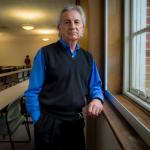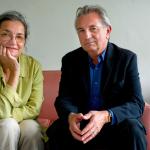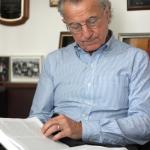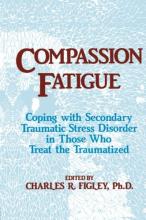Charles Figley
Dr. Paul Henry Kurzweg Distinguished Chair and Professor of Disaster Mental Health and Professor of Social Work
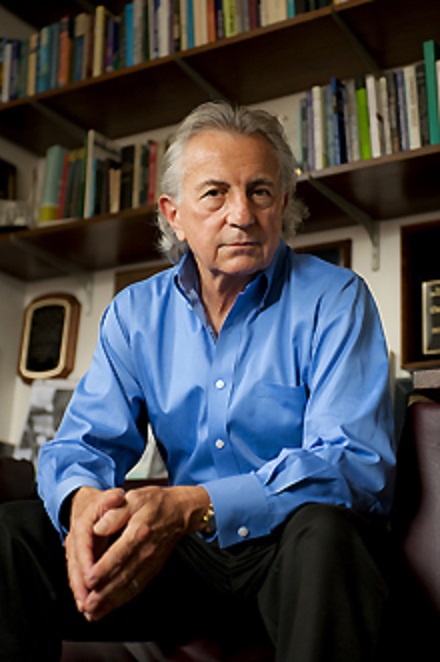
Biography
Charles Figley is an internationally-known trauma expert, social work professor and head of the Tulane Trauma Institute. Following Hurricane Katrina, he helped mobilize crisis counselors for hurricane survivors, conducted training sessions for post-Katrina practitioners and lectured across the country on disaster-related trauma.
Since arriving at Tulane in 2008, he has proven to be a transforming presence, helping launch the City, Culture, and Community PhD program, the Disaster Resilience Leadership Academy and the certification in Disaster Mental Health and Trauma Studies.
He has traveled around the world to help communities cope with disaster, his most recent trip to Puerto Rico to advise leaders on how to galvanize communities to work toward recovery in the wake of Hurricane Maria.
Figley is a highly sought after media source who has spoken on such topics as compassion fatigue, disaster anniversaries and mental trauma following natural disaster, mass shooting and military service.
Education
Penn State University
Penn State University
University of Hawaii at Manoa
Articles
The compassion fatigue scale: Its use with social workers following urban disaster
2007
The present study has two goals: to assess the difference between secondary trauma and job burnout and to examine the utility of secondary trauma in predicting psychological distress.
The social psychology of compassion
2007
This article places social work clinicians’ compassion fatigue, burnout, and other negative consequences in a broader context of positive social work. We argue for a paradigm shift towards identifying the factors that lead clinical social workers toward human flourishing in their field. We introduce a model for creating “compassion satisfaction” or feelings of fulfillment with clients, rooted in positive psychology and expanded to incorporate the social work perspective...
Measuring compassion fatigue
2007
This manuscript provides practitioners a gateway into understanding assessment instruments for compassion fatigue. We first describe and then evaluate the leading assessments of compassion fatigue in terms of their reliability and their validity. Although different instruments have different foci, each described instrument measures at least one component of compassion fatigue...
Media Appearances
College campuses see 'compassion fatigue' in wake of recent mass shootings
Charles Figley, PhD, psychologist and director of New Orleans-based Tulane University Traumatology Institute, indicated compassion fatigue is a natural response for the body.
"We, of course, think about ourselves being in such a place, in which someone would suddenly burst in and shoot things up," Dr. Figley told NPR. "But if we think about that too much, then it deteriorates our sense of confidence and our sense of trust and our sense of safety."...
Another Mass Shooting? 'Compassion Fatigue' Is A Natural Reaction
"We of course think about ourselves being in such a place, in which someone would suddenly burst in and shoot things up," says Figley. "But if we think about that too much, then it deteriorates our sense of confidence and our sense of trust and our sense of safety."...
Mental Trauma After the Storm
"Trauma psychology has emerged and evolved over the last 20 years, even though the history of trauma psychology goes way, way back, and as a result of this emergence of knowledge about trauma, our approaches, our measures, our assessments, our treatment techniques are excellent," says Charles R. Figley, founder of the Tulane University Traumatology Institute. "If (people are) able to present themselves to ... receive services, they not only find that there's much, much less shame in doing so, but the treatments are shorter and more effective and more lasting."...
Tulane Today Mentions
Troops, vets deserve better when it comes to mental health, Tulane professor says in new book
Tulane trauma expert part of program on mental health in the military
Tulane experts speak on conservative female voters and other news
Technology, trauma experts guide Tulane news
Tulane mental health experts assist Puerto Rico post-Maria
From blood pressure to battling erosion
Tulane experts tackle tough topics
Coping with compassion fatigue
In the News
Nola.com: Being Seen in the Struggle: Getting mental health care in the age of disaster
Route Fifty: The Toll of Compassion Fatigue on Government Employees
PBS: After storms, mental health crisis compounded by COVID looms in Louisiana
Big Easy Magazine: Mental Health Crisis Looms in the Aftermath of Hurricane Ida
Psychiatric Times: Treating Psychiatric Combat Casualties
WWL Radio: The Psychological Toll Of Military Service
PTSD problems persist-new Tulane program offers hope
Very Well Health: Real-Life Support Is Better for Your Mental Health Than Social Media
Thrive Global: Healthcare Burnout and How Universities are Helping Equip Students
Forbes: The Covid Syndemic: The Mental Health Crisis Of Mental Health Workers
